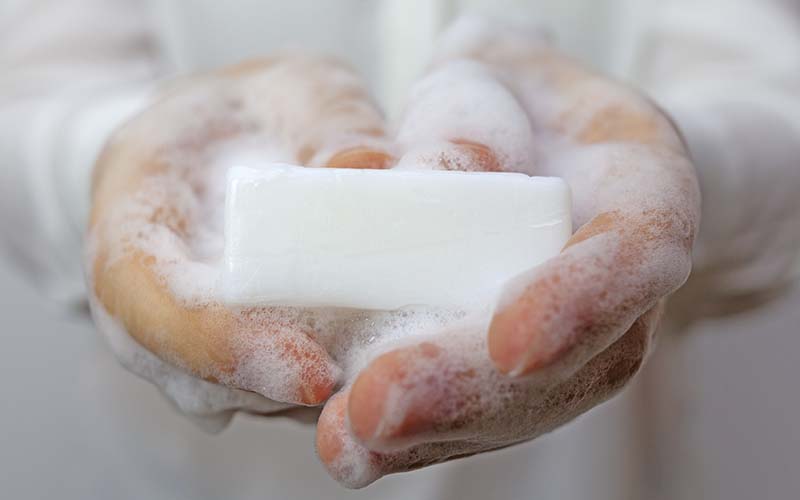According to a recent consumer update by the FDA, there isn’t any evidence to show that using an antibacterial soap (an over-the-counter drug) is better than plain soap when it comes to preventing illness.
In fact, the FDA says that there is some evidence that using antibacterial ingredients can cause more harm than good!
According to Theresa M. Michele, M.D., of the FDA, “Following simple handwashing practices is one of the most effective ways to prevent the spread of many types of infection and illness at home, at school and elsewhere. We can’t advise this enough. It’s simple, and it works.”
What is “Antibacterial Soap”?
In the FDA world, an antibacterial soap (sometimes called antimicrobial or antiseptic) is a soap with a bacteria-killing chemical added to it. Because it’s designed to prevent disease, antibacterial soap is a nonprescription, over-the-counter drug. You can recognize it because the product label typically says “antibacterial” and has a drug facts section naming the active ingredient(s).
In 2016, the FDA completed a review of 19 chemicals used in antibacterial soaps, including the commonly used triclosan and triclocarban. They found that most manufacturers didn’t prove that the ingredients were more effective than plain soap in preventing diseases and the spread of infection. What’s more, the manufacturers also didn’t prove that the chemicals were safe for daily use over a long period of time.
As a result of the review, the FDA updated its rule covering what can and cannot be considered antibacterial soap. Only products containing benzalkonium chloride, benzethonium chloride, and chloroxylenol are qualified to be called “antibacterial.” The rule covers consumer products used with water, such as liquid, foam, and gel hand soaps, bar soaps, and body washes. (It doesn’t cover hand sanitizers, hand wipes, or antibacterial soaps used in health care settings such as hospitals and nursing homes.)
Using “Plain Soap”
It’s been about 150 years since Ignaz Fulop Semmelweis and Oliver Wendel Holmes, Sr. pointed out the contagion of disease by unclean physicians, Louis Pasteur discovered germ theory, Joseph Lister created antiseptics, and Florence Nightengale got everyone to wash their hands.
Now we are coming back around to the basics–plain ol’ soap cleans.
It washes away dirt and grime and, along with them, the microbes and bacteria they carry… naturally, with no chemicals added.


Leave a Reply